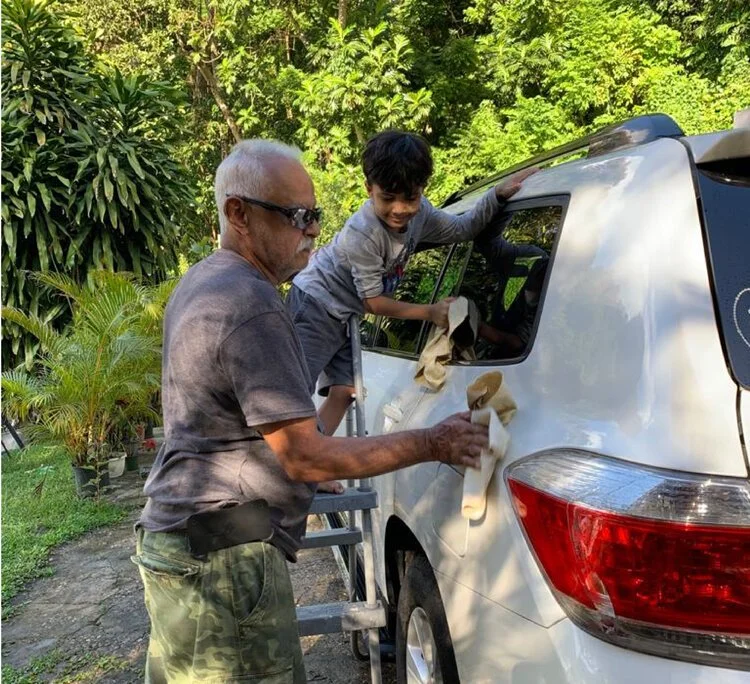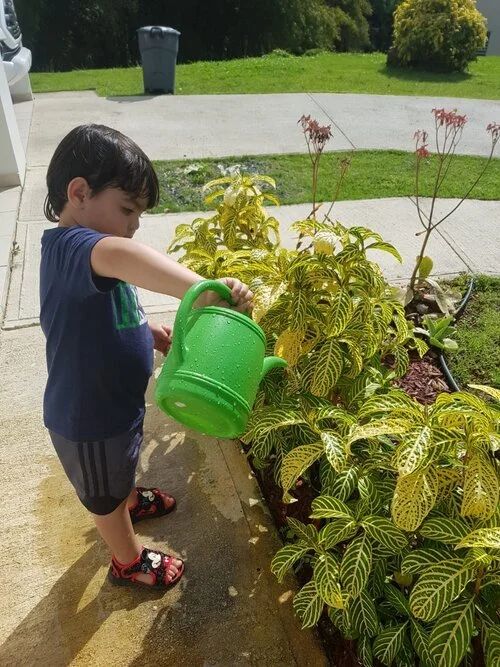Learning while helping at home
The north of Montessori education is to prepare small children and young adolescents to be good citizens.
As Marlyn Rodríguez Fernández, a certified educator in the Montessori methodology, told us, "the goal is to apply what they learn, whether it be academic, emotional, or of service to society." To achieve this goal, it is important that from a young age children are an active part of the small "community" of their home.
This unprecedented time has prompted families to keep children at home and despite the challenges, positive experiences have emerged.. "We have seen how in many cases the value of family has been recovered", she commented while recalling how in a recent exchange with students everyone talked about how they now collaborate around the house.
"By contributing to the home, empathy is promoted" she added, noting that it is important for children and young people to integrate into the daily tasks of their home.
At this time when the general opinion points to a "wasted school year", the invitation is to reflect on the achievements that our children have had and to see how the home is also an environment where people learn for life.
Here are some everyday tasks that can result in academic benefits *
Dressing themselves (3-5 years)
Supports autonomy, independence, control of your large and small muscles, balance, and coordination.
Eating by themselves
It is an important skill for the little ones. It gives them security and independence. Prepares the muscles in their hands for coloring and eventually writing.
Help themselves to water
Using a pitcher to pour water into the glass is a simple task that indirectly develops children's hand-eye coordination, balance, fine motor, and independence.
Clean a table
Both for the little ones and for children who have already started to write, the movement that is made when cleaning is beneficial for writing. In children from 3 to 5 years, it supports the development of the muscles of their hands, preparing them for writing and reading. It also gives responsibility and meaning to daily work. In the older children, it helps them improve their penmanship. In addition to tables, children can be involved in cleaning other surfaces such as cars.
Prepare food
In younger children, preparing a simple snack contributes to the development of autonomy and independence. Indirectly supports the development of their hands, control of their movements, and organization. Older children can prepare more complex dishes, investigate their origin, write and read recipes. In this activity, concepts of language, mathematics, culture, among others, are reviewed.
Sweeping
For ages 3-5, using a broom suitable for their size and sweeping around the home allows your son or daughter to feel like an important part of the home. It is a task that gives you responsibility and independence. In addition to contributing to the control of their movements, eye-hand coordination and strengthens their muscles.
Likewise, in children 6 years and older, this activity helps them to keep a rhythm of work, follow steps to complete a task, and in making decisions. Eg: deciding in which direction to move to continue sweeping.
Picking up toys
Although it may seem simple if children conquer this habit it is of great benefit for their development. Returning the toys to their place once they are finished, as well as their school supplies and even the dishes when they finish eating helps them to be organized and reinforces the sequence of steps. Order helps in math. Older children can do more complex tasks like organizing their closets and documenting that process in writing.
Supermarket notes
No matter what level your child is at, this task is an opportunity for them to learn that writing is important and necessary. Although the child does not yet know how to write, and what he does on paper is a "scribble", this task contributes to the development of language.
Taking out the trash
This task helps the child to control his body, balance and the grip of the bag helps to gain strength in the hands and arms. This contributes to the grip of the pencil and to have strength in the fine motor.
Everything counts
From stairs to food, taking every opportunity to casually count pays off in math.
I spy
Excellent game to review sounds. While on the road the child will try to guess what the adult is seeing based on the first letter sound clue. It is important that if the child makes a mistake, instead of pointing out the mistake, the adult should question the child if that word they said begins with the sound that was asked and reinforce those sounds so that the child realizes and corrects himself.
Contact with nature
Presenting children with the opportunity to plant and take care of nature or simply explore the backyard provides them with opportunities to reinforce language, writing, science concepts, and more.
Is there a topic about Montessori philosophy that you would like to discuss with our academics? Write to fotos@inepr.com.
* Provided by several certified guides in the Montessori methodology


